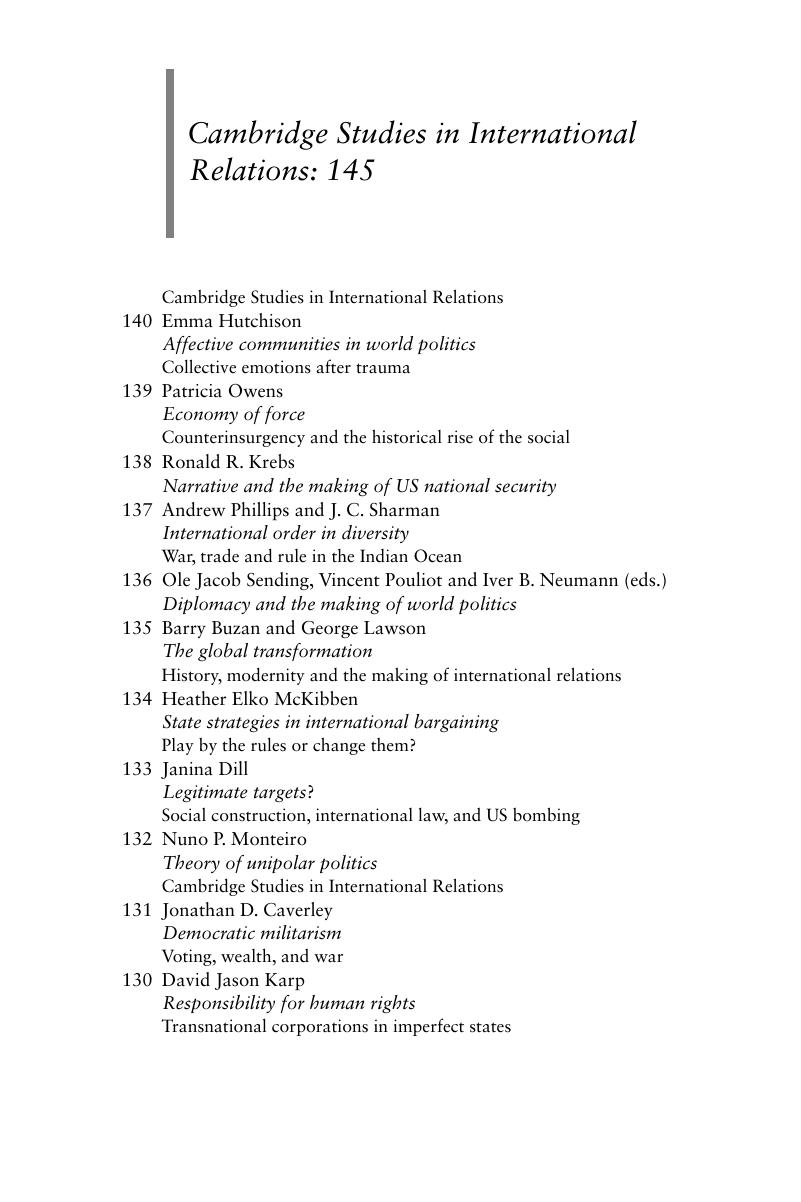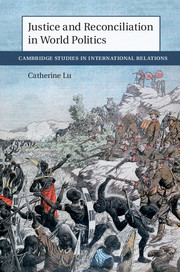Book contents
- Justice and Reconciliation in World Politics
- Cambridge Studies in International Relations: 145
- Justice and Reconciliation in World Politics
- Copyright page
- Dedication
- Contents
- Acknowledgments
- Prelude
- Introduction
- 1 Justice and Reconciliation
- 2 Pathologies of Victimhood
- 3 Settling Accounts
- 4 Agents, Structures, and Colonial Injustice1
- 5 History and Structural Injustice
- 6 Reconciliation and Alienation
- 7 Reparations
- 8 Beyond Reparations
- Epilogue
- References
- Index
- Cambridge Studies in International Relations: 145
- References
Cambridge Studies in International Relations: 145
Published online by Cambridge University Press: 30 October 2017
- Justice and Reconciliation in World Politics
- Cambridge Studies in International Relations: 145
- Justice and Reconciliation in World Politics
- Copyright page
- Dedication
- Contents
- Acknowledgments
- Prelude
- Introduction
- 1 Justice and Reconciliation
- 2 Pathologies of Victimhood
- 3 Settling Accounts
- 4 Agents, Structures, and Colonial Injustice1
- 5 History and Structural Injustice
- 6 Reconciliation and Alienation
- 7 Reparations
- 8 Beyond Reparations
- Epilogue
- References
- Index
- Cambridge Studies in International Relations: 145
- References
Summary

- Type
- Chapter
- Information
- Justice and Reconciliation in World Politics , pp. 311 - 320Publisher: Cambridge University PressPrint publication year: 2017



